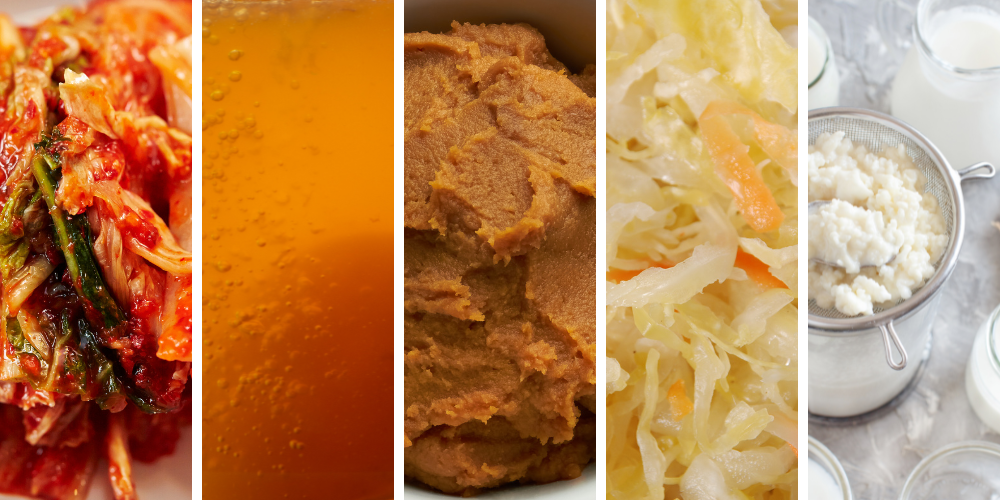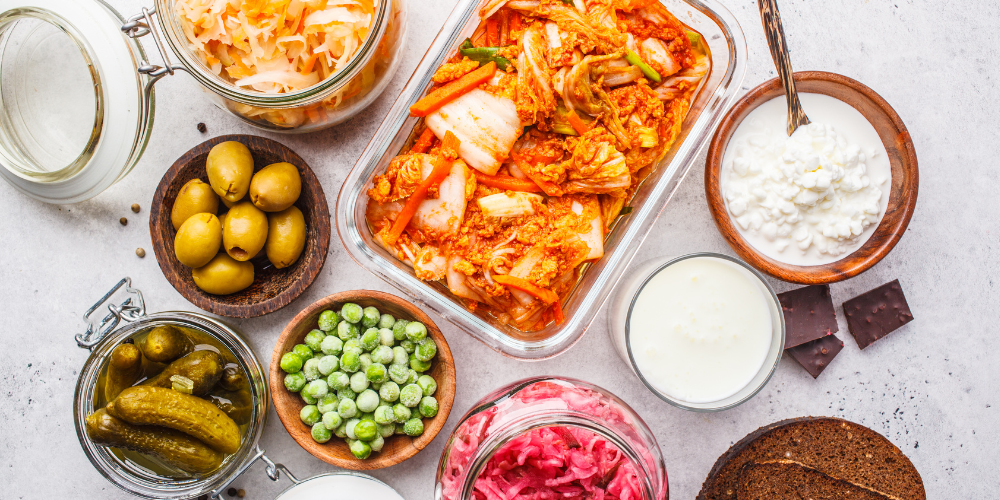The Rising Trend of Gut-Friendly Foods
Gut health has taken center stage in the world of wellness, with an increasing focus on probiotics and fermented foods. From kimchi and kombucha to miso and kefir, these gut-friendly foods are more than just a trend—they offer a range of health benefits that can improve digestion, boost immunity, and even enhance mental well-being. But why is everyone talking about probiotics, and how do fermented foods support gut health? Let’s dive in.
What Are Probiotics?
Probiotics are live beneficial bacteria that promote a healthy balance in the gut microbiome. Our digestive system is home to trillions of bacteria, both good and bad, and maintaining this delicate balance is crucial for overall health. Probiotics help replenish good bacteria, aid digestion, and support immune function.
The Power of Fermented Foods
Fermented foods are natural sources of probiotics, as they undergo a fermentation process that encourages the growth of beneficial bacteria. This process not only preserves food but also enhances its nutritional profile, making it easier for the body to absorb essential vitamins and minerals.

Popular Fermented Foods for Gut Health
- Kimchi – A staple in Korean cuisine, kimchi is a spicy fermented cabbage dish rich in probiotics, fiber, and antioxidants. It supports digestion and may help reduce inflammation.
- Kombucha – This fizzy fermented tea is packed with probiotics, organic acids, and polyphenols. It aids digestion, boosts energy, and may support liver detoxification.
- Miso – A Japanese seasoning made from fermented soybeans, miso is a great source of gut-friendly bacteria and essential amino acids. It enhances digestion and promotes a strong immune system.
- Sauerkraut – Fermented cabbage, similar to kimchi but milder in flavour, sauerkraut is loaded with fiber, vitamins, and probiotics that support gut and heart health.
- Kefir – A fermented milk drink similar to yogurt but with a higher probiotic count. It’s beneficial for lactose digestion, immunity, and gut microbiome diversity.
Why Is Gut Health So Important?
Research continues to highlight the connection between gut health and overall well-being. A balanced gut microbiome plays a role in:
- Digestion & Nutrient Absorption – Probiotics help break down food and absorb key nutrients more efficiently.
- Immune System Support – The gut houses around 70% of the immune system, making it crucial for fighting infections and reducing inflammation.
- Mental Health & Mood Regulation – The gut-brain connection influences mood, stress levels, and even mental health conditions like anxiety and depression.
- Weight Management & Metabolism – A healthy gut can support weight regulation by improving digestion and reducing inflammation.
How to Incorporate More Probiotics into Your Diet
Adding probiotic-rich foods to your diet is easier than you might think. Here are some simple ways to boost gut health daily:
- Start your day with a probiotic smoothie using kefir or yogurt.
- Add a side of kimchi or sauerkraut to your meals.
- Swap regular tea or soda for kombucha.
- Use miso paste in soups, dressings, or marinades.
- Choose probiotic-rich yogurt as a snack.
Gut Health & Fermented Foods
The growing interest in gut health and fermented foods is more than just a fad—it’s a movement backed by science. Probiotics play a vital role in maintaining digestive health, supporting the immune system, and even enhancing mood. By incorporating more fermented foods like kimchi, kombucha, and miso into your diet, you can nurture your gut and reap the long-term health benefits.
Are you ready to start prioritising your gut health? Try adding more probiotic-rich foods to your meals and experience the difference firsthand!
